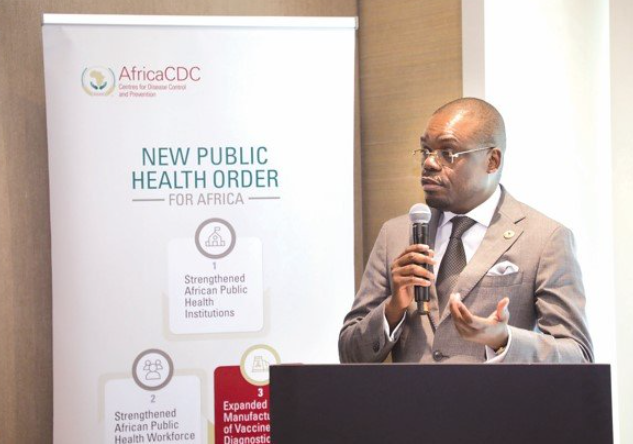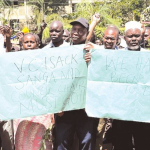The Africa Centres for Disease Control and Prevention (Africa CDC) has declared a public health emergency across the continent in response to the rapid spread of the Mpox outbreak.
Director General Dr. Jean Kaseya announced that Africa CDC is initiating “active engagement” with African Union member states to prevent the outbreak from escalating into another pandemic.
I stand before you with a heavy heart but also with an unwavering resolve. We are meeting today because of the emergence and rapid spread of Mpox,” Kaseya said.
“This is not just another challenge; it is a crisis that demands our collective action, a moment that calls upon the very essence of our humanity, our unity and our strength.”
She added: “Our continent has seen many struggles. We have faced pandemics, various outbreaks, natural disasters and conflicts.
“Yet, through every adversity, we have risen, not as fragmented nations, but as one Africa – resilient, resourceful and resolute. Today, as we confront the threat of Mpox, we must summon that same spirit of solidarity.”
Mpox, or Monkeypox, is caused by the Monkeypox virus, a viral infection that can spread between individuals through contact with surfaces and objects touched by an infected person.
In areas where the Monkeypox virus is present in wild animals, transmission can also occur from infected animals to humans. Symptoms of Mpox can vary widely; while some individuals may experience mild symptoms, others may develop severe illness requiring hospitalization.
Those at high risk of infection include pregnant women, children, and individuals with compromised immune systems, such as those with untreated or advanced HIV.
In the past week, there have been 887 new confirmed and suspected Mpox cases, bringing this year’s total to 15,132. This represents a 160 percent increase compared to the same period last year. Sixteen countries, including the Democratic Republic of Congo, which accounts for over 90 percent of the cases, have been affected, with first-time reports emerging from Burundi, Kenya, Rwanda, and Uganda.
So far, 461 people have died from the disease this year.
Dr. Kaseya underscored the need for a coordinated response, emphasizing the agency’s commitment to mobilizing resources and providing technical assistance to the impacted countries.
An emergency committee has been established to determine whether the outbreak should be declared a global emergency, aiming to enhance the global response, mitigate the health threat’s impact, and protect public health while minimizing disruptions to travel and trade.
Declaring a continental public health emergency involves technical consultations between Africa CDC and affected member states, followed by an extraordinary summit of heads of state to coordinate the response.
In the meantime, the Bungoma County government and the Kisumu Medical and Education Trust (KMET) have launched a project to address high infant mortality rates in the region. This initiative, which operates across the 14 counties of the Lake Region Economic Bloc, aims to promote early childhood development.
Speaking to reporters after the launch of the project on Monday, KMET Executive Director Monicah Ogutu said that nurturing care for early childhood development programmes is a global initiative spearheaded by the World Health Organisation (WHO) and implemented by member countries.
The objective of the project is to ensure that children aged 0-1,000 days survive, thrive and develop to their full potential.
“Nurturing care refers to conditions created by public policies, programmes and services that enable caregivers and communities to ensure children’s good health and nutrition and protect them from
threats,” she said.
The programme has five components: good health, adequate nutrition, safety and security, opportunities for early learning, and responsible caregiving.



